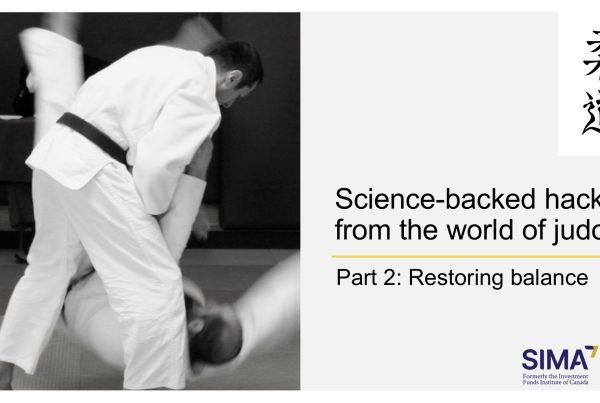We live in a world that puts performance expectations on people, which get translated into outcome goals such as KPIs, OKRs, and so on.
As a business leader, this puts you in a bit of a bind. On one hand, you need your employees, or the members of your team, to deliver on certain results. On the other hand, putting pressure on them to achieve those results can cause stress and anxiety, which throws people off their game, stifles creativity, and worse. And therein lies an important paradox of performance: we put outcome goals on people, but they tend to perform better when they focus on tasks – not outcomes.
Much research has gone into this in the world of sport psychology. “When a process goal is contrasted with an outcome goal (e.g., winning or beating an opponent), the former is usually more controllable than the latter. Accordingly, there are reported benefits of adopting process goals given its controllability, in terms of skills improvement, concentration, self-efficacy and reduced cognitive anxiety (Kingston & Hardy,1997)” (Quoted in Kee et al. (2021), p. 127)
The idea that people perform best when they stop fixating on outcomes – winning a match, achieving a quota, beating a competitor, and so on – is a very old idea that has roots in many different cultures. In Western thought, it aligns nicely with the philosophy of Stoicism, which has been used by some high-performing athletes to achieve the highest results:
“Stoics focus their energy not on winning, but on making the right choices. They put aside frustrations about not achieving goals, whether because of failure, bad luck, or coincidence. All energy goes into what you do have control over. And thinking this way actually increases the chances of achieving your intended results.” (Fast Company, 2024)
Related to the concept of flow developed in the 1970’s by psychologist Mihaly Csikszentmihalyi, this idea of letting go is also an essential aspect of Japanese martial arts, where it is known as Mushin:
“One of the pioneers in sport psychology, T. Orlick devoted an entire chapter in his classic mental preparation guide entitled In pursuit of excellence: How to Win in Sport and Life Through Mental Training to discuss the experience of Zen in sports… (Orlick, 2016). Specifically, Orlick recommends letting go of outcomes, letting go of forcing things, letting go of one’s thoughts about the outcome […] We can consider what Orlick described to be Mushin.” (Kee et al. (2021), p. 127)
The idea is to let go of the outcome, as a way to become one with the task, which in itself is a better way of achieving the goal. To quote Orlick directly, “Win by removing all thoughts of winning. Simply connect and trust the connection. Relax. Attack by relaxing.” (Orlick, 2015)
In their analysis of Mushin and other approaches to non-striving as a path to high-performance, Kee and al. acknowledge the inherent paradox of the proposition: “Given that sports are largely about striving, it can be awkward for the notion of non-striving to be broached within the applied sport psychology practice contexts.” (Kee et al. (2021), p. 124) It can indeed, but it doesn’t make it any less true. Consider what Orlick had to say about this:
“Zen masters long ago wrote about the importance of softness or suppleness as opposed to rigidity, hardness, or inflexibility in freeing yourself to perform your best. I see this every day in athletes and other high-level performers with whom I work. You can’t force performance excellence or best performances; you have to free them to happen. Best performances are nurtured through relaxed power, free-flowing movements, and pure fully focused connections.” (Orlick, 2015)
Now compare Orlik’s words with what Kyuzo Mifune, one of the greatest judo masters who ever lived, wrote about the best judo practitioners:
“Ju” is natural and free, without rigidity or hardness. […] There is no regret in winning or losing […] The essence of judo does not lie in planning your moves. They should occur naturally… A good judo practitioner… will never predetermine his own actions in a match. Instead, his mind will be clear as a mirror. […] This is because once the mind is fixed upon something, free movement and action is hindered.” (Mifune (2004), pp. 23, 25 and 27)
What does it all mean for managers, coaches and leaders? For one thing, it should be evident that “cracking the whip”, “ratcheting up the pressure”, “lighting a fire under”, and other coercive approaches of the same nature are woefully counter-productive. An employee or a team that is under too much stress or pressure to perform will not be on its best game. A much better alternative is to focus on psychological safety, trust, and teamwork, and to help the team acquire the skills and capabilities that will allow them to achieve their goals.
While leaders can help create conditions for their teams and employees to perform better, we all have a personal responsibility to put our best into what we do. So what can you and I do to develop the kind of state of mind that is most conducive to high performance?
Unfortunately, reading about Flow, Mushin, Wuwei, or Stoic philosophy will never allow you to achieve the desired state. You could read book after book and it would make no difference. That is because, “this state [Mushin] cannot be achieved by conceptual understanding, but by focused training.” (Kee et al. (2021) p. 128) But training at what?
Back to Orlick:
“One of the intriguing aspects of sports, martial arts, fine arts, and performing arts as they were originally practiced in Asia thousands of years ago was the importance they placed on training the fully focused mind. Zen was initially developed and experienced through play, sport, martial arts, and fine arts, but its ultimate purpose was to enhance the pure connectedness of living of life itself.” (Orlick, 2015)
There is a wide variety of practices that can help open the door to this most important of insights – that there will be goals and deliverables, but that you and your team will achieve better results if you stop fixating yourself and others on outcomes; that you will win more if you can train yourself to let go of winning.
References:
Orlick, T (2015). In pursuit of excellence: How to Win in Sport and Life Through Mental Training. Human Kinetics, Fifth Edition, 384 pages. (Kindle Edition)
Kee Ying Hwa and al. The wuwei alternative: Effortless action and non-striving in the context of mindfulness practice and performance in sport. Asian Journal of Sport and Exercise Psychology 1 (2021) 122–132
Mifune, K. (2004). The Canon of Judo: Classic Teachings on Principles and Techniques. Translated by Françoise White. Tokyo, Kodansha International, 224 pages.
Gold medalist shares Stoic philosophy principles to unlock your peak potential: Stoics didn’t lean back, they engaged with life. Fast Company, April 21, 2024.
The flow state: the science of the elusive creative mindset that can improve your life. The Guardian, July 20, 2024.



